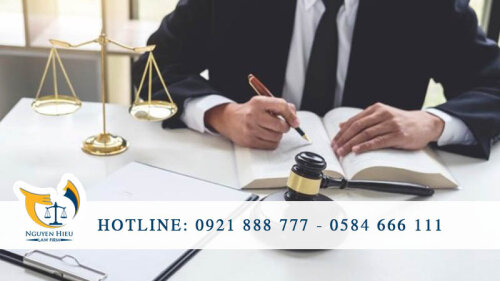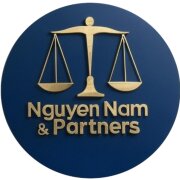Best Brokerage Lawyers in Dong Nai
Share your needs with us, get contacted by law firms.
Free. Takes 2 min.
Free Guide to Hiring a Real Estate Lawyer
List of the best lawyers in Dong Nai, Vietnam
About Brokerage Law in Dong Nai, Vietnam
Brokerage in Dong Nai, Vietnam typically refers to the act of connecting buyers and sellers or parties looking to enter into legal agreements for the sale and purchase of goods, services, or property. Brokerages are involved in a variety of sectors, including real estate, commodities, securities, and business transactions. The law governing brokerage activities sets out the rights and obligations of brokers, the requirements for licensing, and the framework for broker-client relationships. In Dong Nai, as in the rest of Vietnam, brokerage activities must comply with both national laws and any applicable local regulations.
Why You May Need a Lawyer
There are several situations where legal assistance may be crucial for those involved in brokerage activities in Dong Nai. These include drafting and reviewing brokerage contracts, ensuring compliance with local licensing requirements, resolving disputes between brokers and clients, handling claims around payment of brokerage fees, dealing with accusations of fraud or misrepresentation, and navigating regulatory investigations. Seeking expert legal advice can help individuals and businesses avoid costly mistakes and protect their interests during brokerage transactions.
Local Laws Overview
Brokerage activities in Dong Nai are regulated under national legislation such as the Civil Code, Commercial Law, and specific Decrees and Circulars governing sectors like real estate or securities. Local authorities in Dong Nai may also have administrative requirements for business registration and operating licenses. A key aspect of local law is the requirement that brokers register their business, maintain transparent contracts, and adhere to professional conduct standards. Violations can result in administrative penalties, financial liabilities, or the suspension of brokerage rights. Special attention is paid to avoiding conflicts of interest and ensuring that brokers act with honesty and integrity.
Frequently Asked Questions
What types of brokerage are regulated in Dong Nai, Vietnam?
Brokerage is regulated across sectors such as real estate, securities, insurance, and commodities. Each type is subject to specific licensing and operational rules under Vietnamese law.
Is a license required to operate as a broker in Dong Nai?
Yes, most brokerage activities require a license or business registration. The specific requirements depend on the type of brokerage. For example, real estate and securities brokers must meet particular licensing conditions.
Are there special rules for foreign brokers in Dong Nai?
Foreign individuals or entities may face strict legal requirements and limitations. They often need to establish a local representative office or partnership with a Vietnamese company to operate legally in brokerage services.
How are brokerage fees regulated?
Brokerage fees must be clearly stated in contracts and comply with ceilings set by law in some industries. Disputes over fees are a common reason for litigation.
What happens if a broker acts without a license?
Unlicensed brokerage activity is illegal and can lead to administrative fines, criminal charges, and invalidation of contracts facilitated by the broker.
How are disputes between brokers and clients resolved?
Most disputes are first attempted to be settled by negotiation. If unresolved, parties may turn to mediation, arbitration, or the courts, depending on the contract and the nature of the dispute.
Are brokers liable for losses suffered by clients?
Brokers may be liable if it is proven they failed to act with due care, breached contract terms, or engaged in wrongful conduct such as misrepresentation.
What documents should a brokerage contract include?
Key contract elements include the scope of services, brokerage fees, payment terms, broker’s responsibilities, confidentiality clauses, and dispute resolution methods.
Can a broker represent both parties in a transaction?
Some sectors restrict dual representation to prevent conflicts of interest. Where permitted, both parties must be fully informed and consent in writing.
What authorities supervise brokerage operations in Dong Nai?
Supervisory bodies include provincial departments of industry and trade, capital market regulators (for securities), and the Department of Construction for real estate brokers.
Additional Resources
Individuals seeking legal advice or further information about brokerage in Dong Nai may find it useful to consult:
- Dong Nai Department of Planning and Investment: For business registrations
- Dong Nai Department of Construction: For real estate brokerage licensing and regulations
- State Securities Commission of Vietnam: For securities and financial brokerages
- Vietnam Bar Federation and Dong Nai Bar Association: For referral to qualified lawyers
- Local Commercial Arbitration Centers: For alternative dispute resolution
Next Steps
If you require legal assistance in brokerage matters in Dong Nai, consider taking the following steps:
- Gather and organize all relevant documents, such as contracts, communications, and evidence of transactions.
- Identify the main legal issue or question you need resolved.
- Consult a qualified lawyer who specializes in brokerage law or the relevant sector (such as real estate or finance).
- Verify that your chosen lawyer is licensed to practice in Dong Nai and has experience with similar cases.
- Prepare a list of questions to ensure you understand your legal position, possible outcomes, and next steps.
Acting promptly and seeking expert advice can help you protect your interests and ensure your brokerage activities comply with local laws.
Lawzana helps you find the best lawyers and law firms in Dong Nai through a curated and pre-screened list of qualified legal professionals. Our platform offers rankings and detailed profiles of attorneys and law firms, allowing you to compare based on practice areas, including Brokerage, experience, and client feedback.
Each profile includes a description of the firm's areas of practice, client reviews, team members and partners, year of establishment, spoken languages, office locations, contact information, social media presence, and any published articles or resources. Most firms on our platform speak English and are experienced in both local and international legal matters.
Get a quote from top-rated law firms in Dong Nai, Vietnam — quickly, securely, and without unnecessary hassle.
Disclaimer:
The information provided on this page is for general informational purposes only and does not constitute legal advice. While we strive to ensure the accuracy and relevance of the content, legal information may change over time, and interpretations of the law can vary. You should always consult with a qualified legal professional for advice specific to your situation.
We disclaim all liability for actions taken or not taken based on the content of this page. If you believe any information is incorrect or outdated, please contact us, and we will review and update it where appropriate.










